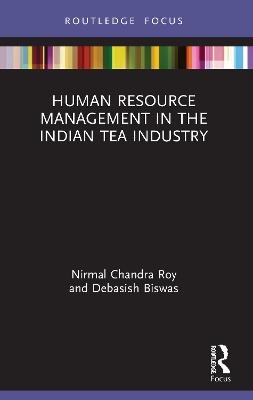
Human Resource Management in the Indian Tea Industry
Seiten
2022
Routledge (Verlag)
978-0-367-67912-5 (ISBN)
Routledge (Verlag)
978-0-367-67912-5 (ISBN)
The tea industry has confronted difficult competition because of the simplification of tariff barriers and the removal of the quantity restrictions on imports. To remain competitive in the market, tea-producing companies have been forced to reduce the various costs, especially labour costs.
Liberalization, Privatization and Globalization policy was advocated in India in 1991 under the supervision of P.V. Narasimha Rao, the then Prime Minister of India. As a consequence, the tea plantation industry was largely affected. It has confronted difficult competition because of the simplification of tariff barriers and the removal of the quantity restrictions on imports. The result of these on the share of export of Indian tea has declined, the price has plunged, and the profitability has reduced.
To remain competitive in the market, tea-producing companies have been forced to reduce the various costs, especially labour costs. Due to this, tea companies are not in a position to fulfil their responsibilities such as health, safety, welfare, and working conditions to the workers. Besides, improper recruitment of labour, lack of proper training facilities, and even irregularities in payment of wages have been increased significantly. As a result, 1.2 million workers in the tea industry to sustain themselves and their families have been adversely affected. This leads to labour unrest and the industry has become vulnerable. The final impact of all these issues spreads to the quality of tea and profitability of the industry in India. This book examines the existing human resource management practices in the Indian tea industry. It adopts a simplified yet comprehensive approach to showcase workforce management in the tea industry.
This book will be of value to postgraduate students, researchers, HR professionals, and policymakers in the fields of human resource management, business history, and industrial relations.
Liberalization, Privatization and Globalization policy was advocated in India in 1991 under the supervision of P.V. Narasimha Rao, the then Prime Minister of India. As a consequence, the tea plantation industry was largely affected. It has confronted difficult competition because of the simplification of tariff barriers and the removal of the quantity restrictions on imports. The result of these on the share of export of Indian tea has declined, the price has plunged, and the profitability has reduced.
To remain competitive in the market, tea-producing companies have been forced to reduce the various costs, especially labour costs. Due to this, tea companies are not in a position to fulfil their responsibilities such as health, safety, welfare, and working conditions to the workers. Besides, improper recruitment of labour, lack of proper training facilities, and even irregularities in payment of wages have been increased significantly. As a result, 1.2 million workers in the tea industry to sustain themselves and their families have been adversely affected. This leads to labour unrest and the industry has become vulnerable. The final impact of all these issues spreads to the quality of tea and profitability of the industry in India. This book examines the existing human resource management practices in the Indian tea industry. It adopts a simplified yet comprehensive approach to showcase workforce management in the tea industry.
This book will be of value to postgraduate students, researchers, HR professionals, and policymakers in the fields of human resource management, business history, and industrial relations.
Dr. Nirmal Chandra Roy is Assistant Professor in the Department of Business Administration (Human Resource) at the University of Burdwan, West Bengal, India. Dr. Debasish Biswas is Assistant Professor in the Department of Business Administration at Vidyasagar University, West Bengal, India.
1. Tea Industry in India. 2. History of Tea Industry in India: Particularly North Bengal Region. 3. Growth and Development of Tea Industry in India: Particularly in North Bengal. 4. Span of Management and Procurement Practices in Tea Estates of North Bengal. 5. Training and Compensation Practices of Tea Estates in North Bengal. 6. Integration and Maintenance Function in Tea Estates of North Bengal. 7. Findings, Conclusions and Recommendations.
| Erscheinungsdatum | 07.09.2022 |
|---|---|
| Reihe/Serie | Routledge Focus on Business and Management |
| Zusatzinfo | 34 Tables, black and white; 9 Line drawings, black and white; 9 Illustrations, black and white |
| Verlagsort | London |
| Sprache | englisch |
| Maße | 138 x 216 mm |
| Gewicht | 140 g |
| Themenwelt | Wirtschaft ► Betriebswirtschaft / Management ► Personalwesen |
| Weitere Fachgebiete ► Land- / Forstwirtschaft / Fischerei | |
| ISBN-10 | 0-367-67912-4 / 0367679124 |
| ISBN-13 | 978-0-367-67912-5 / 9780367679125 |
| Zustand | Neuware |
| Haben Sie eine Frage zum Produkt? |
Mehr entdecken
aus dem Bereich
aus dem Bereich
wie wir Arbeit (wieder) lieben lernen
Buch | Softcover (2024)
Vahlen (Verlag)
24,90 €
Experten Know-How, Praxistipps, Rechtshinweise
Buch | Hardcover (2023)
Springer Gabler (Verlag)
69,99 €


